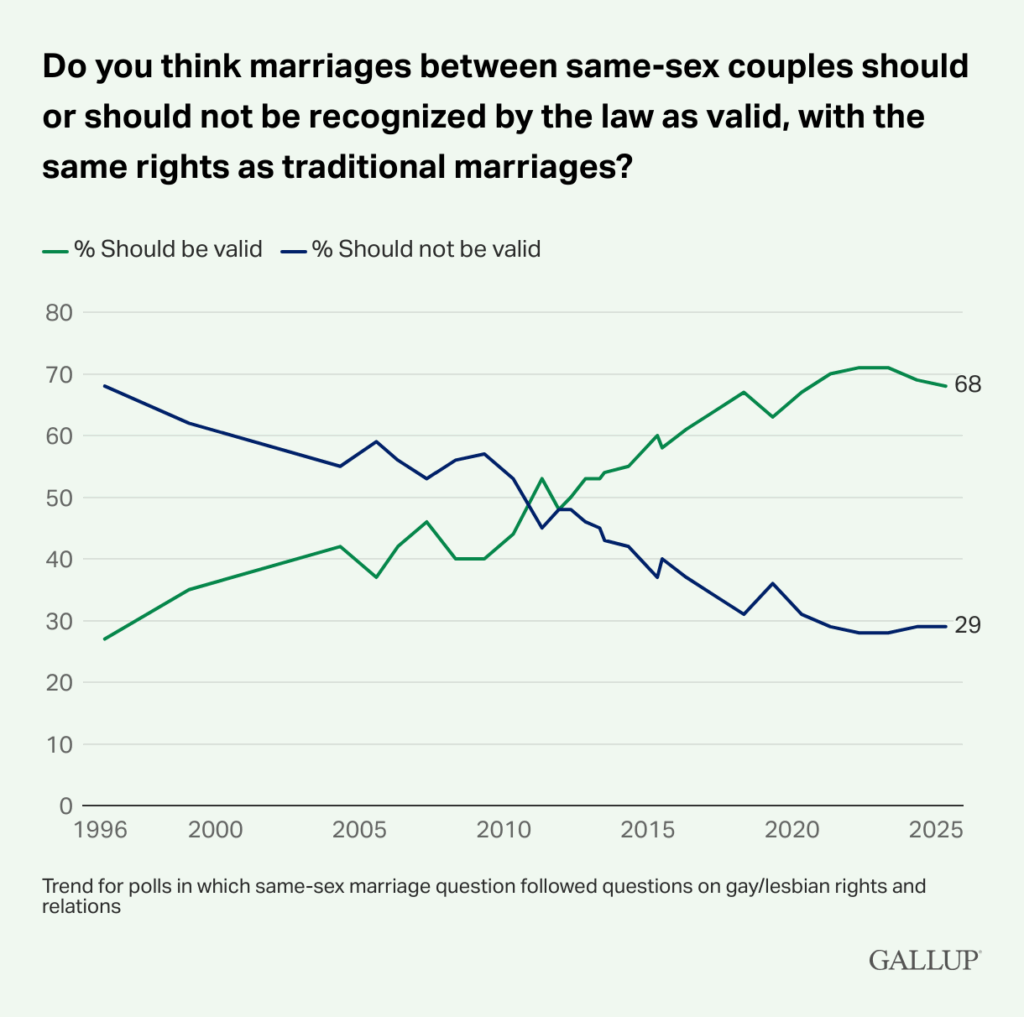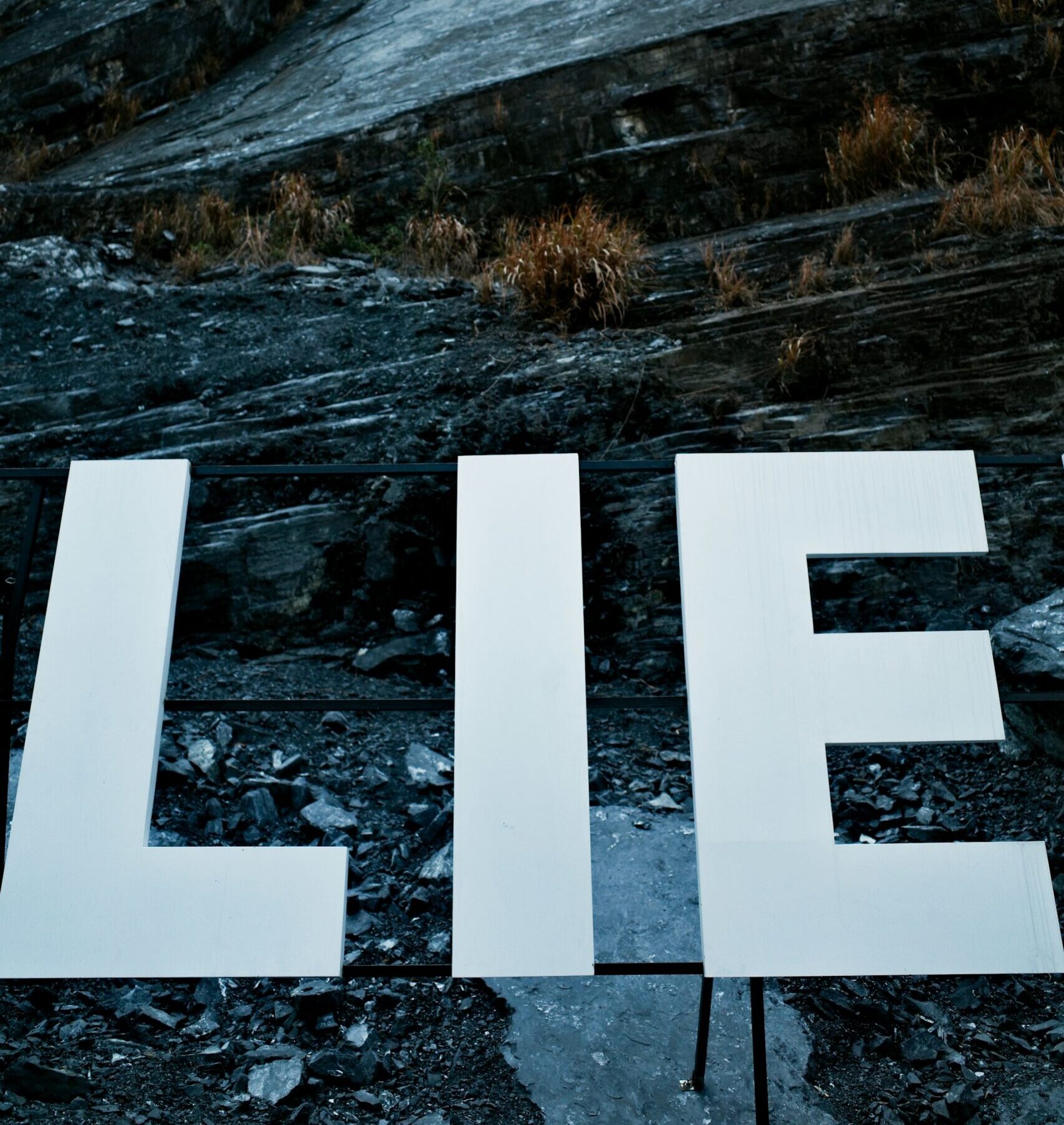The ‘Big Lie’ against DEI
(— and what employers should do now)
Out Now was established in 1992. At that time LGBT+ people, particularly gay and bi men, were routinely attacked in the media for being who they are.
The criticism of choice at that time was largely their sex lives and a claim they were more likely than other members of society to become HIV positive and to potentially die from Acquired Immune Deficiency Syndrome (AIDS).
The attacks were so frequent and so widely perpetrated that there was for a time in NSW, Australia (and in other jurisdictions) a “gay panic” defence to the charge of murdering a gay man, if the accused claimed that the man they killed had made romantic advances towards them.
Despite these attacks, truth prevailed as more and more gay men, lesbians, bi and trans people — and people of diverse sexual orientations and gender identities — chose to become visible. It was through the personal connections these people had with those in their lives who knew and loved them that society evolved.
They learned that LGBT+ people are as diverse as any person in society and that being LGBT+ is simply one element of who an LGBT+ person is.
Importantly more people became visible as being “out” with more family members, friends, colleagues and society at large.
We started to see more and more people ‘coming out’ as LGBT+ and this led to new approaches — in society, including in the media and in the workplace. There was a corresponding increase in the acceptance of LGBT+ people’s relationships being equally valid to those of ‘traditional’ relationships, between a woman and a man.

A story as old as civilisation
People whose skin colour is not white who live in a predominantly white culture know far too often there exists a risk that someone who is racist might discriminate against them.
Racism has long existed as has sexism, misogyny, homophobia, bi-phobia, transphobia and so on.
Not feeling comfortable with people who are different than oneself is not admirable but it can be the result of unthinking, learned reflexes. We can all do it sometimes to varying degrees, if someone looks a certain way or has some physical trait that makes us feel uneasy. Usually it is familiarity that increases our comfort levels with people whose background may be different to ourselves.
The idea that at some point in time society might see an organised push against the advances in inclusion I have witnessed first-hand since 1992 has long been a concern I have had, one which has found its voice in the current MAGA-led anti-DEI crusade we see happening in the United States. There are ripple effects felt more widely across the world, which one suspects was part of the design in rolling out a large-scale anti-DEI push, which the current US administration rolled out as one of its very first policy initiatives.
Convincing people to believe that some mythical “other” is the reason their life has not been as successful as they had hoped has proved to be like pushing at an open door, given how many decades of ingrained discrimination has historically existed in societies across the world.
In the case of the principles of diversity and inclusion though, the critics have relied on propagating a manufactured myth, which is simply not true.
The ridiculous lie at the heart of anti-DEI arguments
People against DEI often claim that inclusion of diversity is about advantaging some groups over others, when the opposite is true. These same critics often then go on to say that they believe in a merit-based system when it comes to selecting the best candidate for a position.
Claiming that DEI advantages particular groups over others is a perverse inversion of what inclusion is actually about. Inclusion of diversity in the workplace is specifically intended to ensure the fullest possible functioning of meritocracy.
Creating hiring processes that consider job applicants from the broadest, most diverse field of candidates, irrespective of their race, gender, sexual orientation, nationality and so on means being able to hire the very best qualified person to fill each role at work, no matter what that person looks like or how they may be different from the kinds of people traditionally hired in the past.
Anti-DEI propaganda, which is continuing today, claims that DEI is about preferencing some job candidates over others. That is 180-degrees out of phase with what DEI actually does, which is to make sure that firms are not reflexively hiring the same kind of job applicant over and over with talent blindspots causing them to miss considering potentially stronger talent from diverse communities. The successful applicant is the person best qualified for the job, no matter what their personal background, race, gender or any other non-work related characteristics. It is
Implementing DEI in hiring does not require any group to be preferenced over the other. In fact, it does precisely the opposite, by considering the widest possible field of candidates specifically to ensure that the very best qualified candidate gets the job, no matter what their background.
The only job applicants advantaged by diversity and inclusion principles in hiring are those whose skills best match the needs of the job they get hired for. The whole approach is designed to make sure the employer successfully hires the best qualified candidate for every position.
So where should employers go from here?
There are some key learnings evident from recent events that show clearly what strategy makes the most business sense for employers to pursue.
We will take a look at the steps employers should implement in Part 2.
.

